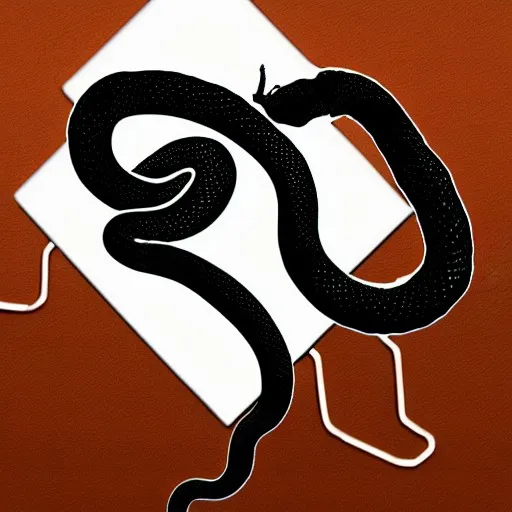- cross-posted to:
- technology@lemmy.zip
- cross-posted to:
- technology@lemmy.zip
A judge has dismissed a complaint from a parent and guardian of a girl, now 15, who was sexually assaulted when she was 12 years old after Snapchat recommended that she connect with convicted sex offenders.
According to the court filing, the abuse that the girl, C.O., experienced on Snapchat happened soon after she signed up for the app in 2019. Through its “Quick Add” feature, Snapchat “directed her” to connect with “a registered sex offender using the profile name JASONMORGAN5660.” After a little more than a week on the app, C.O. was bombarded with inappropriate images and subjected to sextortion and threats before the adult user pressured her to meet up, then raped her. Cops arrested the adult user the next day, resulting in his incarceration, but his Snapchat account remained active for three years despite reports of harassment, the complaint alleged.
Bunch of things going on here.
On the one hand, Snapchat shouldn’t be liable for users’ actions.
On the other hand, Snapchat absolutely should be liable for its recommendation algorithms’ actions.
On the third hand, the kid presumably lied to Snapchat in order to get an account in the first place.
On the fourth hand, the kid’s parents fail at basic parenting in ways that have nothing to do with Snapchat: “If you get messages on-line that make you uncomfortable or are obviously wrong, show them to a trusted adult—it doesn’t have to be us.” “If you must meet someone you know on-line in person, do it in the most public place you can think of—mall food courts during lunch hour are good. You want to make sure that if you scream, lots of people will hear it.” “Don’t ever get into a car alone with someone you don’t know very well.”
Solution: make suggestion algorithms opt-in only (if they’re useful, people will opt in). Don’t allow known underage individuals to opt in—restrict them to a human-curated “general feed” that’s the same for everyone not opted in if you feel the need to fill in the space in the interface. Get C.O. better parents.
None of that will happen, of course.
On the other hand, Snapchat absolutely should be liable for its recommendation algorithms’ actions.
Should they though? The algorithm can be as simple as “show me the user with the most liked posts”. Even the best design algorithm is going to make suggestions that users connect with sex offenders because the algorithm has no idea who is a sex offender. Unless snapchat has received an abuse report of some kind of actively monitors all accounts all the time, they have no way to know this user is dangerous. Even if they did monitor the accounts, they won’t know the user is dangerous until they do something dangerous. Even if they are doing something dangerous, it may not be obvious from their messages and photos that they are doing something dangerous. An online predator asking a 12 year old to meet them somewhere looks an awful lot like a family member asking the same thing assuming there’s not something sexually suggestive in the message. And requiring that level of monitoring is extremely expensive and invasive. It means only big companies with teams of lawyers can run online social media services. You can say goodbye to fediverse in that case, along with any expectation of privacy you or anybody else can have online. And then, well, hello turnkey fascism to the next politician who gets in power and wants to stifle dissent.
Kids being hurt is bad. We should work to build a society where it happens less often. We shouldn’t sacrifice free, private speech in exchange or relegate speech only to the biggest, most corporate, most surveilled platforms. Because kids will still get hurt, and we’ll just be here with that many fewer liberties. Let’s not forget that the US federal government has a list of known child sex offenders in the form of Epstein’s client list and yet none of them are in prison. I don’t believe that giving the government more control and surveillance over online speech is going to somehow solve this problem. In fact, it will make it harder to hold those rich, well-connected, child rapist fucks accountable because it will make dissent more dangerous to engage in.
Yes, they should. They chose to deploy the algorithm rather than using a different algorithm, or a human-curated suggestion set, or nothing at all. It’s like a store offering one-per-purchase free bonus items while knowing a few of them are soaked in a contact poison that will make anyone who touches them sick. If your business uses a black box to serve clients, you are liable for the output of that black box, and if you can’t find a black box that doesn’t produce noxious output, then either don’t use one or put a human in the loop. Yes, that human will cost you money. That’s why my suggestion at the end was to use a single common feed, to reduce the labour. If they can’t get enough engagement from a single common feed to support the business, maybe the business should be allowed to die.
The only leg Snapchat has to stand on here is the fact that “C.O.” was violating their TOS by opening an account when she was under the age of 13, and may well have claimed she was over 18 when she was setting up the account.
Parents seriously need to be more aware of what kids are doing on their phones. Why the hell is a 12 year old on snapchat to begin with?
Correct me if I’m wrong, but I doubt snapchat requires photo ID in order to make an account. Besides requiring ID, it’s not clear to me how else snapchat would be able to know that she is a minor and that the perpetrator is a sex offender.
Isn’t stopping this exact thing their reasoning to why they can read all your messages?
They are too busy looking at titties or cocks
putting this all on the parents is a failure to understand how parenting works. parents who are the most attentive still aren’t around their kids all the time and children will always find a way to do something. why was snapchat connecting adults to children through algorithms in the first place?
Something tells me you didn’t read my comment.
Unless we want snapchat and other apps to require photo ID, how would snapchat actually know who is a child and who is an adult? Why did the parents not know or care that the kid had snapchat downloaded?
I take it that you’re not a parent. So, if Snapchat is not able to know that someone is a sex offender, how is a parent to know? All you can do as a parent is talk to your kids about the dangers of these kind of apps. Sure, you could, and maybe should, forbid usage of these apps, but at the end of the day you’re not looking over your kids shoulders 24/7.
We had to walk a delicate line with our kids (2005-2017) when it came to interaction online. Never wanted them to feel like we were keeping them from experiencing the knowledge or social interaction the internet provided. But we also kept close tabs and paid special attention to specific behaviors. So if they were in their netbooks we’d make it a habit to walk behind them not to look but just to see what their reaction would be. Kids mostly know right from wrong and when they feel it “might” be wrong they try and hide it from their parents. If you pay attention you’ll see them “hiding” and that’s a sign to dig deeper. This way they maintain their privacy and any issues can be brought to light with them directly.
(Understand that the following will have specific details changed just for anonymity’s sake) Grooveshark was the first interaction we saw was troublesome. So we sat our daughter down and asked her direct why she was trying to hide her netbook from us seeing it and what had she been doing she felt she needed to hide? The alternative was to relinquish the netbook until she told us. Come to find out a friend of hers from school (female 2 years older) was trying to slowly convince her to lie to her parents and sneak off with her. Our daughter told us this because it scared her not because she would lose her access. We also stayed open and active with our kids indulging in the same things they were interested in (Minecraft, Guitar Hero, etc) regardless if it was explicitly something we enjoyed. So she didn’t lose access to Grooveshark because she really loved listening to music. We just kept an eye on it and she removed her friend from communication. We explained what she was likely attempting and her friend admitted to it. They’re not friends now but it never happened again.
Don’t get me wrong, we made tons of bad calls before we learned what worked. But the key to all of it is paying attention. Not hovering over them and stopping them from making mistakes. But watching the nuance of their interactions with everyone around them. If they start to get secretive then there is usually a reason. And it’s best to just talk to them about it. And if one conversation doesn’t do it then have multiple conversations. Listen to what they have to say and why they were being secretive. Works best when they’re not expecting it too (like in the middle of playing Minecraft together). Anyway that’s just IMHO.
The fact they killed Omegle over pretty much exactly this but it’s apparently fine when Snapchat does it makes me angry. The only difference is one of them has billionaire investors to please.
This is the best summary I could come up with:
A judge has dismissed a complaint from a parent and guardian of a girl, now 15, who was sexually assaulted when she was 12 years old after Snapchat recommended that she connect with convicted sex offenders.
Cops arrested the adult user the next day, resulting in his incarceration, but his Snapchat account remained active for three years despite reports of harassment, the complaint alleged.
's family had “clearly alleged” that Snap had failed to design its recommendations systems to block young girls from receiving messages from sexual predators.
Internet law professor Eric Goldman wrote in his blog that Bellis’ “well-drafted and no-nonsense opinion” is “grounded” in precedent.
Pointing to an “extremely similar” 2008 case against MySpace—“which reached the same outcome that Section 230 applies to offline sexual abuse following online messaging”—Goldman suggested that “the law has been quite consistent for a long time.”
However, as this case was being decided, a seemingly conflicting ruling in a Los Angeles court found that “Section 230 didn’t protect Snapchat from liability for allegedly connecting teens with drug dealers,” MediaPost noted.
The original article contains 665 words, the summary contains 177 words. Saved 73%. I’m a bot and I’m open source!
Might as well shut off the Internet
Lets be real how could they be.








